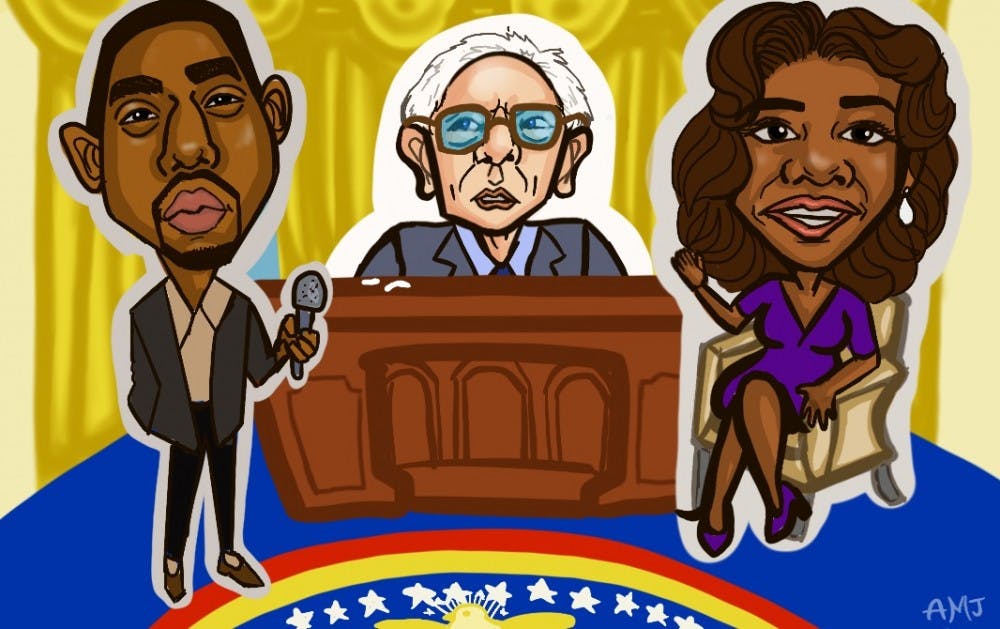“Fans want the music, but they want a politician,” Aminé sung in his song "STFU."
With just over a year left until students vote in the 2020 presidential election, the question of whose hands will we place our country's fate in still stands. And the answer shouldn't be musicians, athletes or actors — and sorry Twitter, Oprah already said no.
Unfortunately, politicians like Bernie Sanders and Joe Biden have transcended politics and have become pop culture icons to some extent — being especially popular on memes and stickers.
Maybe students should take a page out of Oprah’s book and realize that political office requires more than one powerful speech and 2 million Instagram followers. Although our current president may see things differently, his presidency has proved that prior experience is incredibly important for a position that affects around 328 million people.
With the election fast-approaching, calls for celebrities to hold political office, from governors to presidents, should not be a social media trend. Instead, people must look toward politicians, activists and other community members who are campaigning for office with powerful policy and reform that students can support.
The issue that may also be impacting this push for celebrity politicians is a lack of high-profile politicians who align themselves with students' values.
In the Guardian, Cas Mudde wrote, "This is the main reason that celebrities are (thinking of) entering politics and that people are (thinking of) voting for them: the lack of attractive options among experienced politicians."
Yet some students see the issue with pushing celebrities to run for office when they may not be prepared, while still offering solutions for fellow college students and celebrities alike.
Mia Senechal, a senior studying political science, has been working since 2016 on different political campaigns and advocacy projects such as the Arizona Democratic Party and Kate Gallego's campaign for Phoenix mayor.
Senechal said that celebrities "might underestimate the road, the difficulties and complexities that come with running for office. I would much rather see local organizers, who’ve been doing the work and don’t often get credit for it, run for office. They’ve been in their communities, they know the issues first-hand."
She said she also understands that students may feel overlooked by their respective elected officials, but urges them to recognize the fault in that as well as the opportunity they may have.
"Instead of putting their effort toward advocating for a celebrity who isn’t even, in reality, considering a run at any office, they should put that same sort of energy and effort in looking for accountability toward their local politicians," Senechal said.
Following Oprah’s speech at the 2018 Golden Globes, Vice’s Eve Peyser wrote, "Trump himself was 'inspiring' to many Americans who voted for him despite all his obviously disqualifying traits. We don't need any more 'inspirational' politicians, we need people who have actual experience governing."
This goes beyond celebrity politicians as well, and activists and community organizers should also receive the same level of support that Twitter has given to random Internet personalities after posting a five minute YouTube video or viral tweet.
It's clear that pop culture icons may not be fit for every role they play — and with that said, the answer students are looking for may lie within their own communities.
Reach the columnist at mfoxall@asu.edu and follow @mayafoxall on Twitter.
Editor’s note: The opinions presented in this column are the author’s and do not imply any endorsement from The State Press or its editors.
Want to join the conversation? Send an email to opiniondesk.statepress@gmail.com. Keep letters under 500 words and be sure to include your university affiliation. Anonymity will not be granted.
Like The State Press on Facebook and follow @statepress on Twitter.




